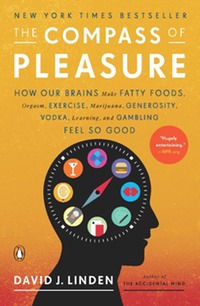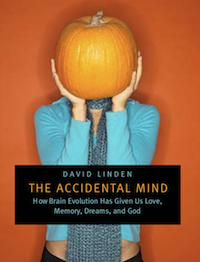Everyone wants a free lunch. The desire to improve cognitive function by simply taking a pill is so strong that in 2005 over $1 billion worth of “smart herbal” supplements were sold in the USA despite little proof of their effectiveness. Mostly, these supplements peddled in vitamin stores and on the internet, are a scam. However, this suggests the more important question: Is it possible to make real “smart pills”?
In order to have successful learning of facts and events several things have to happen. First, one must pay attention, stay focused on the relevant information and use working memory effectively during the task. Together, these processes are referred to as executive function. Then, the relevant information has to be written into long-term memory in a way that is reasonably accurate and which can be retrieved with appropriate cues. So, drugs which improve learning, so-called cognitive enhancers, can do so either by improving executive function or by enhancing the consolidation and integration of memory, or both.
The US military, particularly the Air Force, has appreciated the importance of brain executive function for over 50 years and routinely provides its pilots with ”go pills” which are nothing more than amphetamine tablets. While amphetamines are used by military pilots to restore the loss of attention and focus produced by fatigue, many studies have shown that well-rested people can also improve their performance in a wide range of learning tasks by taking amphetamines. Similarly, the amphetamine-like drug methylphenidate, sold in the USA under the trade name Ritalin, can improve executive function in children and adults who have been diagnosed with attention deficit hyperactivity disorder (ADHD). But, in truth, any child will do better in school and any adult will perform better at work on Ritalin, regardless of whether they have been diagnosed with ADHD. This is widely appreciated and has led to use of Ritalin among normally functioning people (particularly college students) seeking to improve their cognitive performance. Milder improvement can be seen with other stimulants such as caffeine and nicotine, as well as the new anti-narcoleptic drug modafinil (sold as Provigil). In general, this class of compound targets the noradrenaline and dopamine systems in the brain and exerts most of its effect not by enhancing memory storage per se, but rather by improving attention and executive function.
Drugs to enhance memory storage directly are at a much earlier stage in their development. A small number of drugs have been created to reduce memory loss in people with Alzheimer’s disease, including donepezil (sold as Aricept) and galantamine (Reminyl) both of which appear to work by interfering with the breakdown of the neurotransmitter acetylcholine in the synaptic cleft. These drugs have a rather small effect. At best, they can slow but not reverse the inevitable loss of function that occurs as neurons continue to die during the progression of Alzheimer’s disease. This class of drug produces little or no improvement in learning tests administered to healthy adult subjects.
There are several types of drug presently in development which hold promise to improve memory, not just in Alzheimer’s disease, but also in the much larger population experiencing normal age-related decline in memory. In addition, we have reason to expect that, like stimulants, these drugs will also function as cognitive enhancers for young people. One class of drug currently in clinical trials attempts to boost the induction of LTP by briefly increasing the function of AMPA type receptors for the neurotransmitter glutamate. These drugs, of which the experimental compound CX717 (made by Cortex Pharmaceuticals) is one example, do not directly activate AMPA receptors but rather make it so that when glutamate binds AMPA receptors, the resultant depolarization of the postsynaptic membrane is larger and longer. Presumably, this will help to produce greater relief of the magnesium ion blockade of the NMDA type glutamate receptor, thereby facilitating the induction of long term synaptic potentiation and depression (LTP and LTD) and presumably, memory consolidation. One particular concern about this class of drug is that it might promote seizures in some people.
Another type of drug presently in development seeks to target later events in memory storage. Rather than promoting induction of LTP/LTD, these drugs are designed to stimulate the transcription factor CREB with the hope that this will promote conversion of LTP/LTD induction into a more permanent, long-term form, thereby facilitating the consolidation of long-term memory. While these drugs (such as the experimental compound MEM1414 from Memory Pharmaceuticals), which inhibit the breakdown of the cell messenger molecule cyclic AMP, do seem to improve memory, they may not be doing it via CREB activation. Cyclic AMP, which is produced by activation of dopamine and noradrenaline receptors, triggers a broad range of biochemical events in neurons and tends to make them more excitable as well. It may be these functions, rather than CREB activation, that account for the memory-improving effects of MEM1414 and related compounds.
So, cognitive enhancers that work by improving executive function are already here and those which will work by actually improving memory storage directly are likely to arrive within the next 10 years. The first group of these drugs will have significant side effects, but with time and effort, this will be reduced considerably.
These pharmaceutical developments will force us, both as individuals and as a society to think carefully about our options. Most of us already practice mild cognitive enhancement with caffeine or nicotine. How far should we be willing to go to enhance cognitive function still further? Does this practice corrupt our societal concept of reward based on merit? Is it appropriate for employers (including the military) to insist that their employees use these drugs to boost performance? Will the availability of cognitive enhancer drugs to wealthy individuals and nations further increase the gap between rich and poor?





